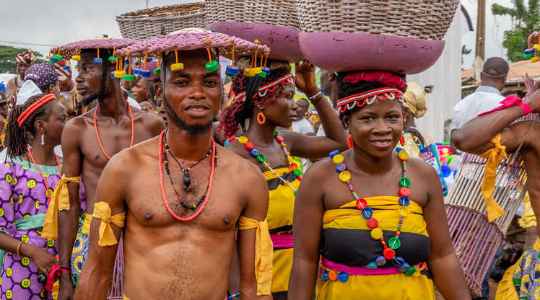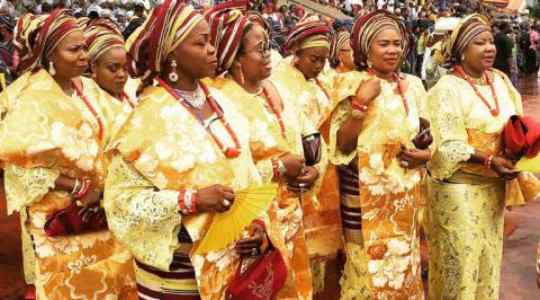The Ojude Oba cultural festival held is held on the third day after the Eid-el Kabir (Sallah) celebration in western Nigeria. The famous festival started out in 1892 when the then Oba Adesumbo Tunwase offered landed properties to the Muslims for a Mosque to be built.
https://youtu.be/pAhrRUVUgZA
Ojude Oba Festival started as a religious festival when a small number of adherents and followers of the Islamic religion chose to pay homage and show appreciation to the reigning Monarch for his kind gesture and benevolence to them.
However, the festival has transcended religious lines today and it attracts people of all faiths as well as tourists from within and outside Nigeria.
On the day of the event, various peers and age groups come in festive attires to pay tribute to the king after which the festival continues with various forms of entertainment.
The Ojude-Oba festival is grand, glamorous and colourful; celebrated with extreme pomp and pageantry. The town is literally shut down, hotels in Ijebu-Ode are fully booked and there is so much to eat and drink.
The aim of the Ojude-Oba is to celebrate the rich culture and heritage of the people of Ijebu Ode. This is showcased via resplendent traditional attires, deft hairstyles, cuisine (ifokore) and the reenactment of rare cultural dances which can only be watched at a festival of such magnitude.
The 100-year-old festival welcomes over 45,000 visitors amidst heavy, singing, dancing and drumming also pay homage to the paramount ruler of Ijebu-land, HRH Oba Sikiru Kayode Adetona, Ogbagba 11.
Again the age-grades and the Oba’s subjects take turns to pay homage to the Awujale of Ijebu-land by presenting different foodstuffs and other items.
At the event’s main arena, peers of different ages seat in groups as they observe and take part in the festive proceedings which kicks off with so much pomp and pageantry.
Peers of various age group then take turns to pay their respect to the king. Several groups of men and women also come out to display to dance amidst singing and drumming.
The festival is a display of the culture and heritage of the Ijebu people. It is celebrated with great cuisine options, spectacular cultural dances and horsemanship.



















